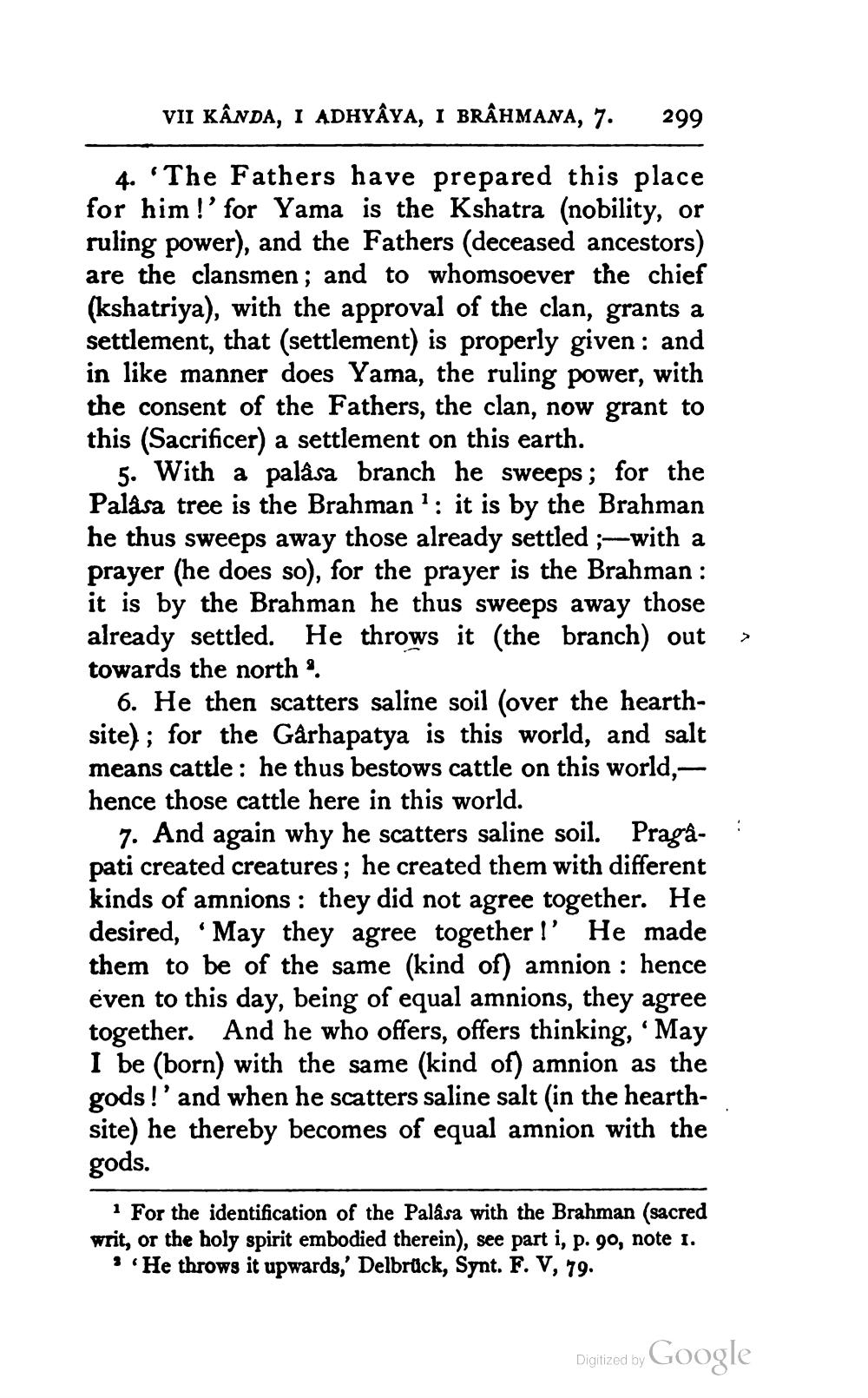________________
VII KÂNDA, I ADHYÂYA, I BRÂHMANA, 7.
299
4. 'The Fathers have prepared this place for him!' for Yama is the Kshatra (nobility, or ruling power), and the Fathers (deceased ancestors) are the clansmen; and to whomsoever the chief (kshatriya), with the approval of the clan, grants a settlement, that (settlement) is properly given : and in like manner does Yama, the ruling power, with the consent of the Fathers, the clan, now grant to this (Sacrificer) a settlement on this earth.
5. With a pala sa branch he sweeps; for the Paläsa tree is the Brahman': it is by the Brahman he thus sweeps away those already settled ;-with a prayer (he does so), for the prayer is the Brahman : it is by the Brahman he thus sweeps away those already settled. He throws it (the branch) out towards the north
6. He then scatters saline soil (over the hearthsite); for the Garhapatya is this world, and salt means cattle: he thus bestows cattle on this world, - hence those cattle here in this world.
7. And again why he scatters saline soil. Praga pati created creatures; he created them with different kinds of amnions : they did not agree together. He desired, “May they agree together!' He made them to be of the same (kind of) amnion : hence even to this day, being of equal amnions, they agree together. And he who offers, offers thinking, 'May I be (born) with the same (kind of) amnion as the gods!' and when he scatters saline salt (in the hearthsite) he thereby becomes of equal amnion with the gods.
1 For the identification of the Paläsa with the Brahman (sacred writ, or the holy spirit embodied therein), see part i, p. 90, note 1.
• 'He throws it upwards, Delbrück, Synt. F. V, 79.
:
Digitized by Google




